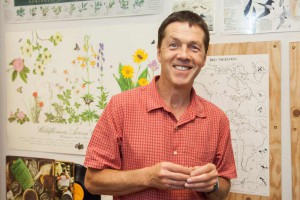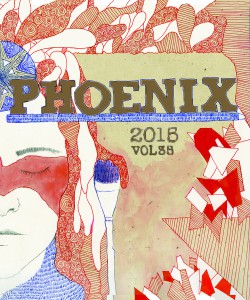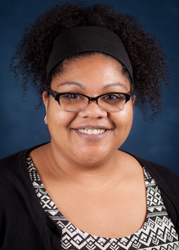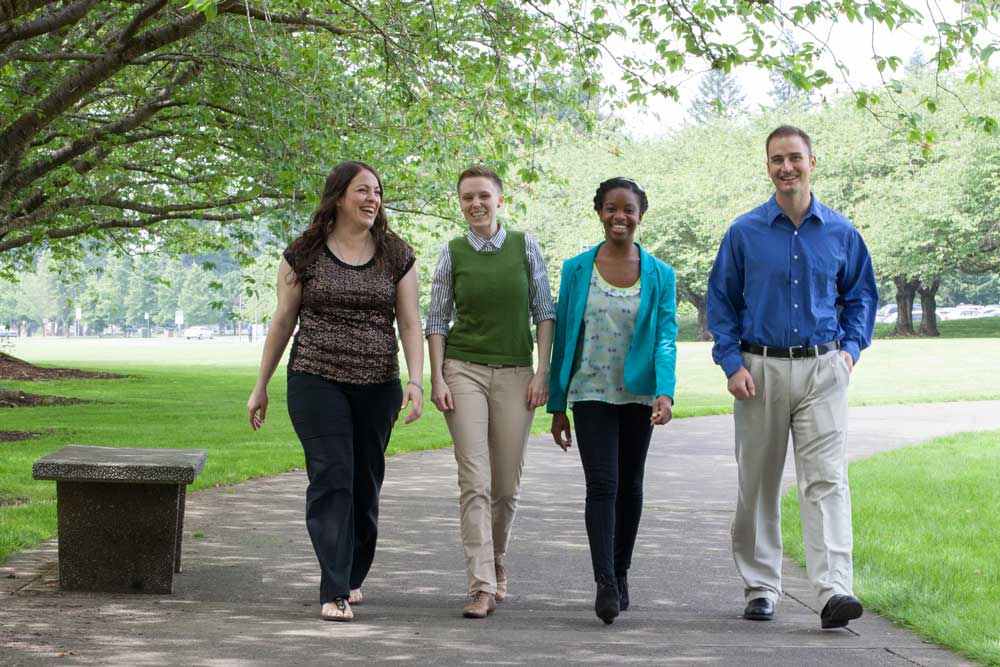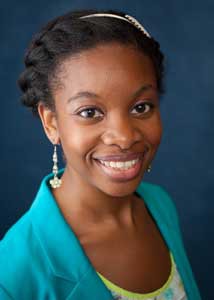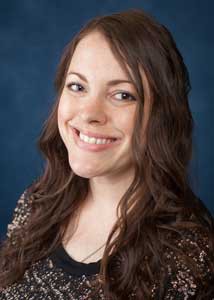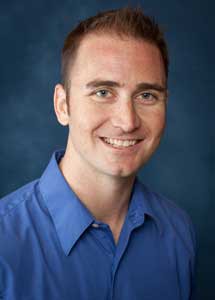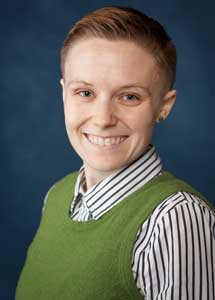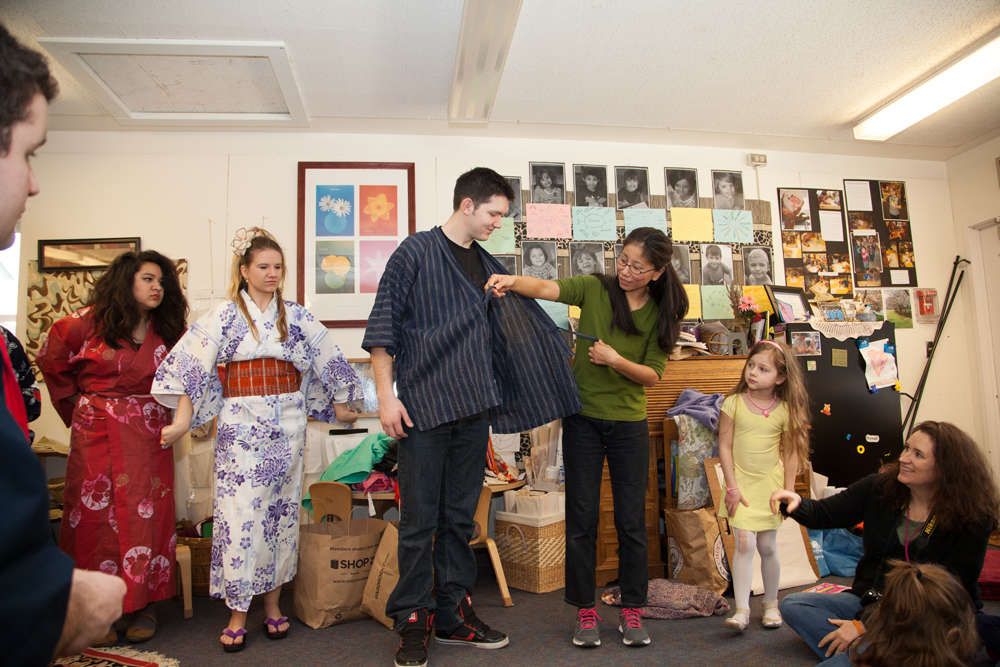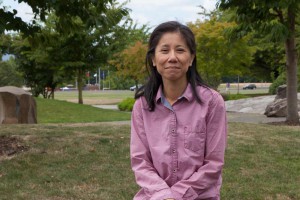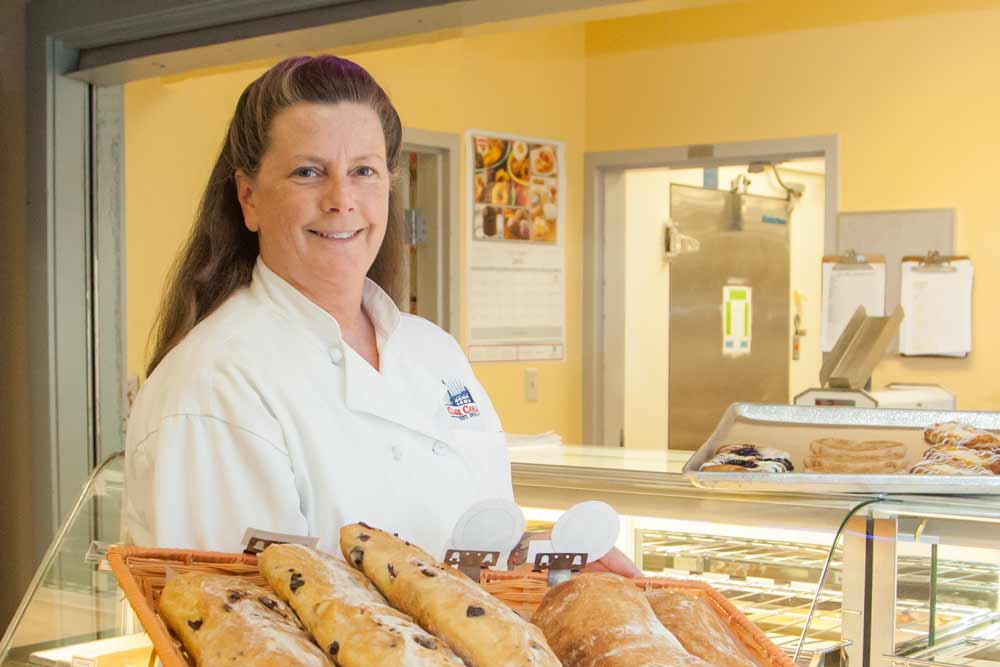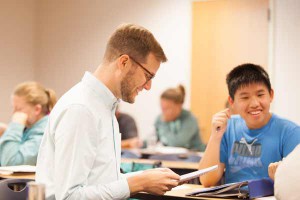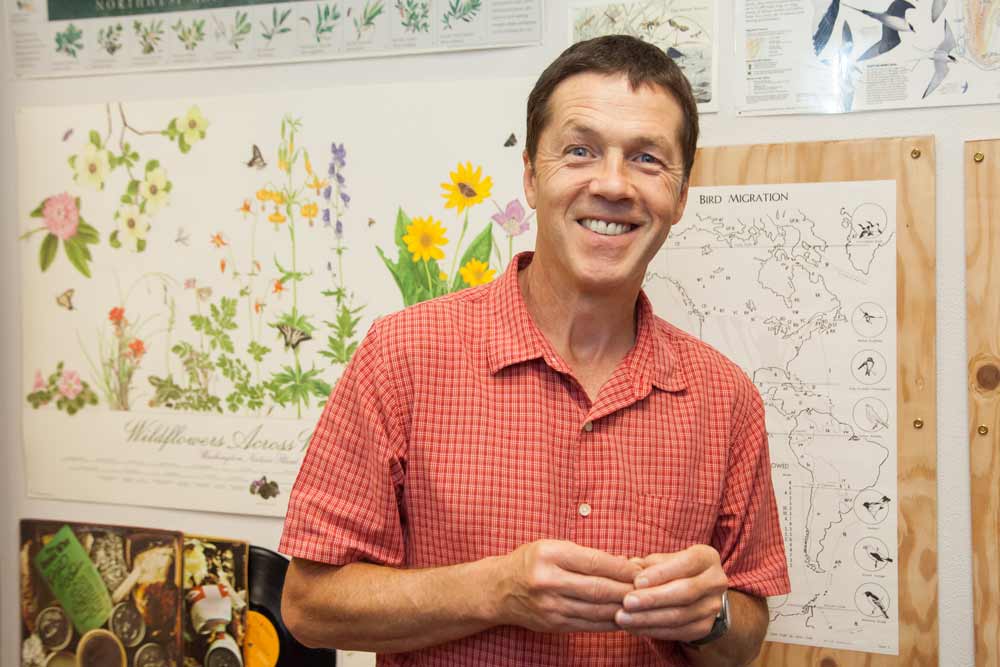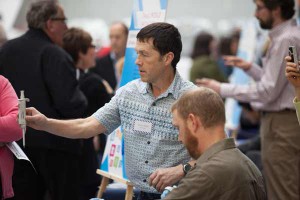A beautiful birthday
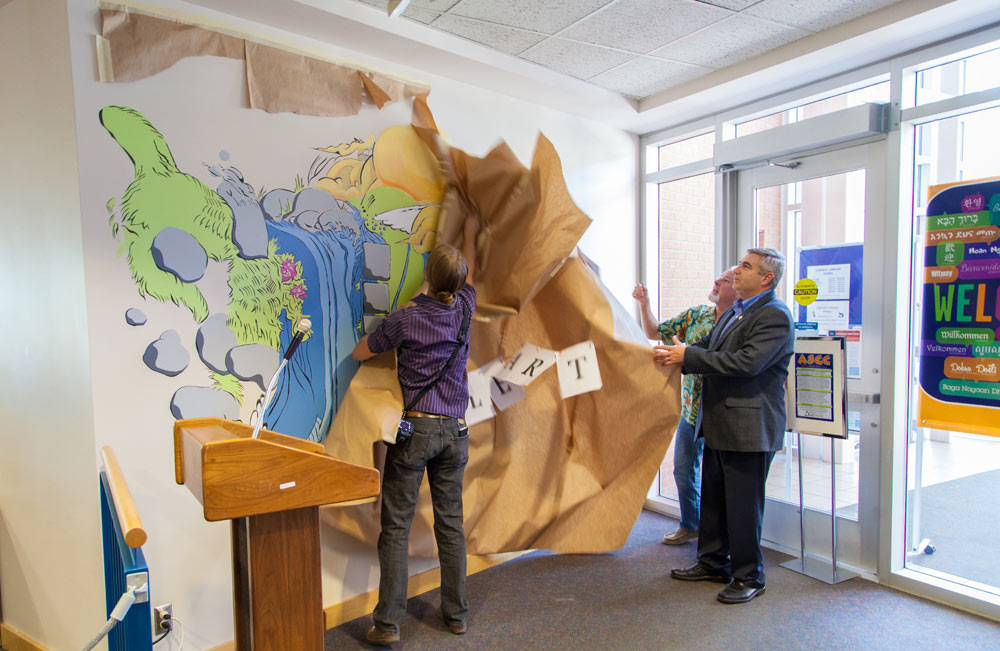
Art students Matt Harmon and John Mangan, with assistance from Clark College President Bob Knight, unveil a new mural at the 25th anniversary of Cannell Library. Photo: Clark College/Nick Bremer-Korb
Normally, you wouldn’t hold a birthday party at a library. But when you’re celebrating the “birth” of a library itself—well, bring on the sweets and decorations! Fans of Cannell Library gathered for a festive celebration of the landmark building on September 29, a quarter-century after the library first opened its doors to Clark students and the public.
The event began with greetings from Clark College President Bob Knight and Dean of Clark Libraries & Academic Success Services Michelle Bagley. Knight commended the library, calling it a “wonderful learning environment for our students.”
Bagley noted that Cannell, like libraries around the world, has had to make many changes over the past 25 years to adapt to evolving technology. Primarily print collections are now housed digitally; the library loans out netbooks and phone chargers along with books and DVDs; and the building is devoting more of its square footage to small study rooms and collaborative spaces as students come to the library for more than just reading.
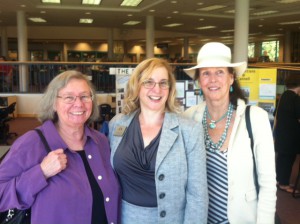
All three of Cannell Libary’s directors–former director Lynn Chmelir, current Dean of Clark Libraries and Academic Success Services Michelle Bagley, and former director Leonoor Ingraham-Swets–were on hand to celebrate the building’s 25th anniversary. Photo: Bob Hughes
“The changes this library has seen over the last 25 years are really amazing,” Bagley said. “We have a great team here. This is a group that is continually thinking forward. They are innovative, they initiate change, and they are creative. I’m excited to see what they will do in the next 25 years.”
As befitting a birthday party, there was even a gift to unwrap: a new mural created by members of the Clark College Art Club that graces the library’s entrance. The project began during spring quarter, when members of the Art Club, who had been looking for a service project, offered to create a mural to fill a space left blank after an artwork that had been on loan to the library was removed. Members submitted design proposals; that of student Matt Harmon was chosen.
“The title I suggest for this work is ‘Nature and Change,’ but I want everyone to come up with their own interpretation of this,” Harmon said before unveiling the mural with President Knight and fellow Art Club member John Mangan, who helped organize the project.
Later, Harmon said that working on the project helped validate his choice to attend Clark. “The main reason I came to Clark was to become a part of an art scene,” said the 32-year-old, who expects to earn his Associate of Fine Arts in spring 2016. “For the longest time I didn’t want to go to school.”
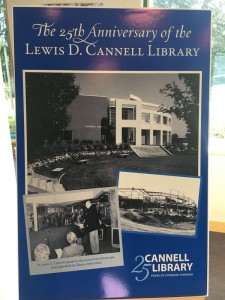
Posters and displays celebrated Cannell Library’s past and future at the building’s 25th anniversary celebration.
Mangan, meanwhile, originally came to Clark in 2013 to pursue his love of painting after retiring from his 37-year tenure as a medical photographer for the Department of Veterans Affairs. In fact, Clark played into his choice to settle in Vancouver after retirement. “Clark College is one of the top community colleges in Washington, and it’s got a really good art department,” he explained. “I frankly didn’t expect to be in school this long, but I really enjoy it and there’s always another class to take.”
Opened in 1990, Cannell Library is the seventh library location in the college’s 82-year history; previously, the library had spent many years in the space now occupied by the Clark College Bookstore in Gaiser Hall. With its curving white exterior overseeing the Chime Tower, the building has become an iconic part of the college’s main campus. It houses a computer lab, numerous study rooms, and access to more than 3 million volumes through its Summit interlibrary loan system. It is named after Dr. Lewis D. Cannell, who served as Clark’s chief academic officer from 1935 until 1970. Dean Cannell was always a strong advocate for Clark’s library, saying, “A book is a wonderful invention, as basic as the wheel. One doesn’t have to plug a book in, one doesn’t have to thaw it out; one simply opens it and another human being speaks to you.”
